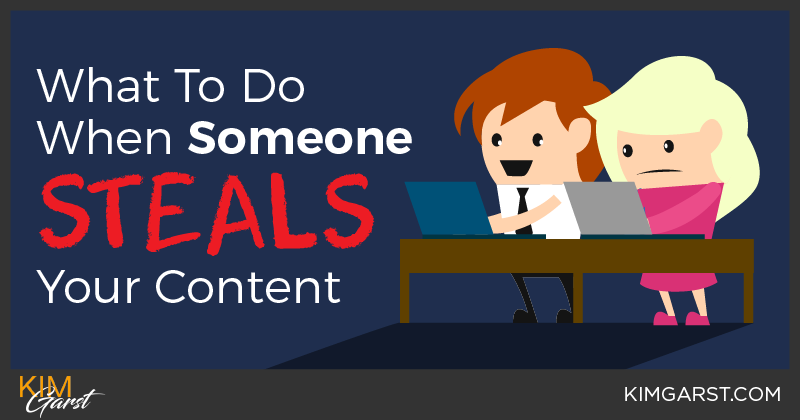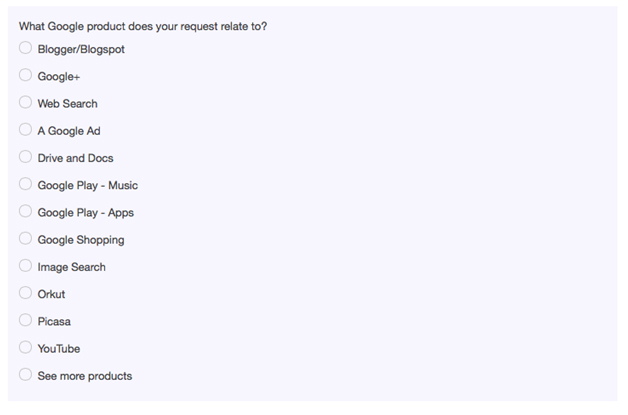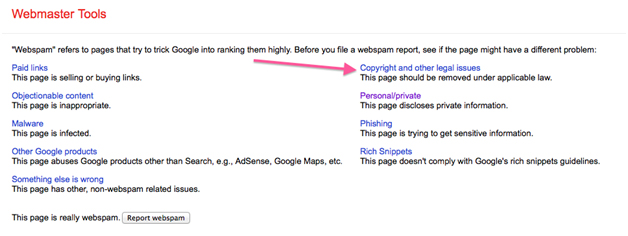If you have ever had someone steal your content and claim it as their own, you have likely felt frustrated and angry that someone else is reaping the benefits of your hard work. You may also have felt powerless to do anything about it, however there are steps you can take to take back your content (more on this in a minute).
Some time ago I had someone steal hundreds of my graphics and overlay their logo over them (replacing mine with theirs), and then use them on Facebook and Twitter.
I was alerted by someone else and since their website had a phone number, I picked up the phone, identified myself and shared the problem.
The gal who answered the phone said, “’I’ll find out who’s responsible”. It took several days, but the business did delete the majority of them.
Unfortunately, my experience isn’t unique; content theft happens every single day. But how do you know what’s considered content theft and what’s not?
What is Content Theft?
Any situation in which someone uses your content – whether it is your images or your written content – without a link back to your site, that is content theft. In fact, even using one of your images with attribution may be considered copyright infringement depending on whether or not you have deemed it creative commons. This is something that I recently learned myself!
Here are a few examples of situations that would be considered copyright infringement:
- Someone modifies and uses your images (which you have NOT deemed creative commons)
- Someone uses your images with OR without attribution (if you own the image and it’s not creative commons, no one can actually use it, even WITH a link back to your site!)
- Someone re-publishes entire pages of your content on their site verbatim (this is referred to as content scraping)
- Someone quotes or reposts excerpts of your content without giving attribution
Steps You Can Take When Your Content Has Been Stolen
Whether you want to take action against a content thief is entirely up to you. At times you may actually receive some SEO benefits from having your content stolen (if there is a link back to your site).
In some cases, however, you may decide the infringement is significant enough to pursue action to have the content removed. In this case, there are 4 steps you can follow to take back your content.
1. Take a Picture.
Before you do anything else, I would recommend taking a screenshot of the offending content as proof, particularly if the extent of the theft is significant. This will protect you from any ‘he said she said’ should things escalate.
2. Contact the Owner of the Site.
In the majority of cases of copyright infringement, the perpetrator will not have done so intentionally. Oftentimes a polite email or phone call asking them remove the content (or at least give attribution in the form of a link to your site) will be sufficient.
In many cases, you will be able to find contact information on the site’s contact page, but if not, you can run a search on WhoIs.net.
This communication is typically known as a ‘cease and desist’ letter, and depending on the nature of the theft, you may or may not want to use this terminology. For instance, if an otherwise reputable blogger has unknowingly used one of your images, a simple, friendly email is usually enough. For a site that is clearly scraping your content however, you may want to use the ‘big guns’, and warn of ‘further action’ should the content not be removed expeditiously.
3. Contact the Web Host.
If the website owner refuses to take down the content or doesn’t respond to your communications within a reasonable amount of time, the next step would be to contact the site’s hosting company. You can use WhoIsHostingThis.com to get this info.
Provide the screenshots you took above, or other proof of ownership (for instance the time stamp on your post), and request that the content be removed. In some cases this may result in the content being removed, while in others it may result in the entire site being shut down.
4. Contact Google.
If you have no luck with any of the above, a final course of action should be to contact Google directly to let them know about the infringement. This will ensure that Google understands that you are the original author or creator of the content, meaning you receive the rankings, NOT the thief.
You may also want to file a Google Spam report in Google Webmaster Tools, just to cover all your bases.
Unfortunately, most website owners will experience content theft at some point. In most cases, you will find that a simple email will take care of the problem.
However if that doesn't work and you feel your site or search engine rankings are being negatively impacted by the theft, you will likely want to take action as soon as possible using the steps above. I hope that my post has given you some guidance on what to do if and when someone steals your content.
Have you ever been the victim of content theft? How did you deal with it?
About Author
Kim Garst
Kim Garst is a renowned marketing strategist and speaker who is trailblazing the use of artificial intelligence in digital marketing. With over 30 years of experience as an online entrepreneur, Kim helps entrepreneurs grow their business and authority online by using AI technology. She is leading the way with proven AI frameworks that help entrepreneurs build authority in their space.
She is keynote speaker and an international best-selling author of Will The Real You Please Stand Up, Show Up, Be Authentic and Prosper in Social Media.
Named by Forbes as a Top 10 Social Media Power Influencer, Kim is well-known for her skill to simplify complex technology and make the use of AI understandable for business growth. Her relatable, actionable advice helps guide new entrepreneurs to harness the power of AI to succeed in digital marketing. Kim is leading the way in combining human and technological skills to create a new model for AI-powered marketing.










Sharing directly from the source is the best way. If you are sharing and don’t know where it originated from, I would recommend NOT doing that. It’s too much of a risk in my opinion. Asking permission and giving attribution is critical to keeping out of hot water.
This was so nice of this person, right (being sarcastic) :-)…sometimes there is value when someone borrows our work but most of the time, it’s just a hassle and a serious aggravation to boot.
You need to hire an attorney and pursue them for a piece of every DVD sale. I am not an attorney but this would be my advice 🙂
Uggghhh, it’s a huge problem, Lee. Sorry to hear that you have struggled so with this! Hope you can get it resolved.
Hi Kim. Was wondering if you can recommend some standard text to put at the end of each page/post to warn off people that might be thinking of using your content. I’ve been trying to write something polite and professional sounding but it just doesn’t sound right.